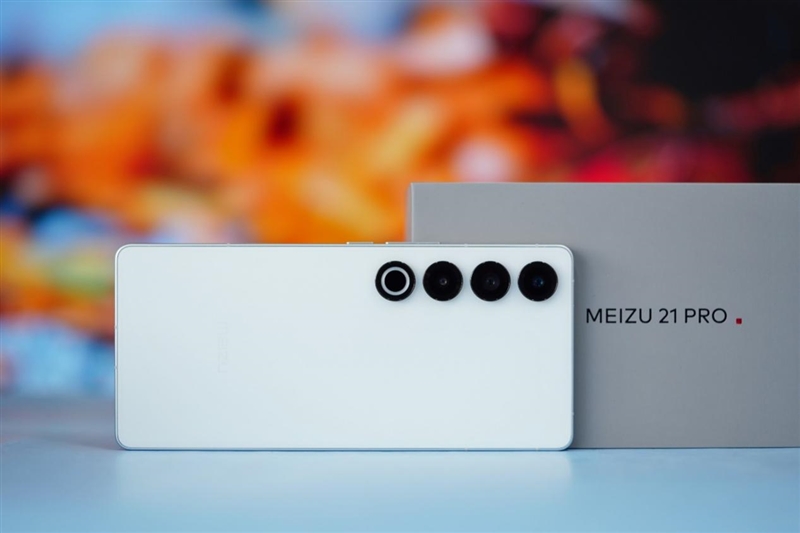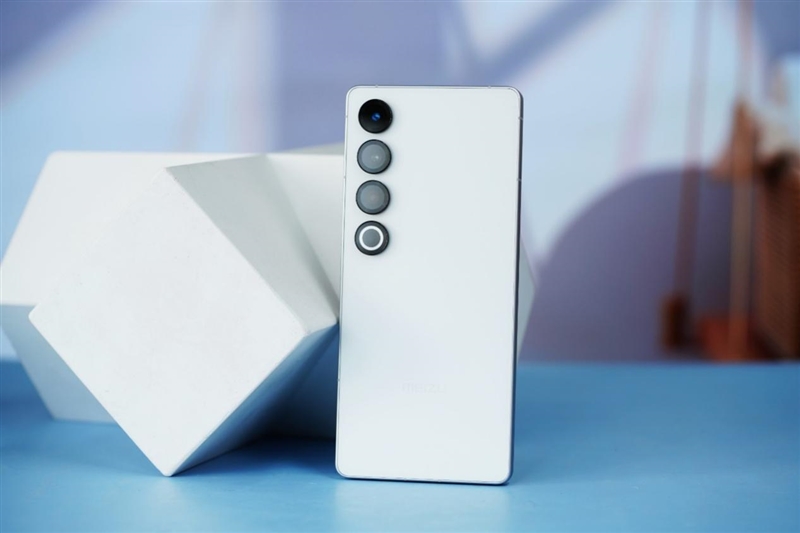The Meizu 21 PRO boasts a 21:9 golden ratio screen, featuring the classic Meizu white color, making it both easy to use and aesthetically pleasing.
The Meizu 21 PRO fully implements the four-narrow bezel design from the previous generation Meizu 20 PRO. Its 6.79-inch large screen flagship, with a 74mm ergonomic narrow body, achieves a 21:9 slender ratio, allowing for comfortable one-handed use.
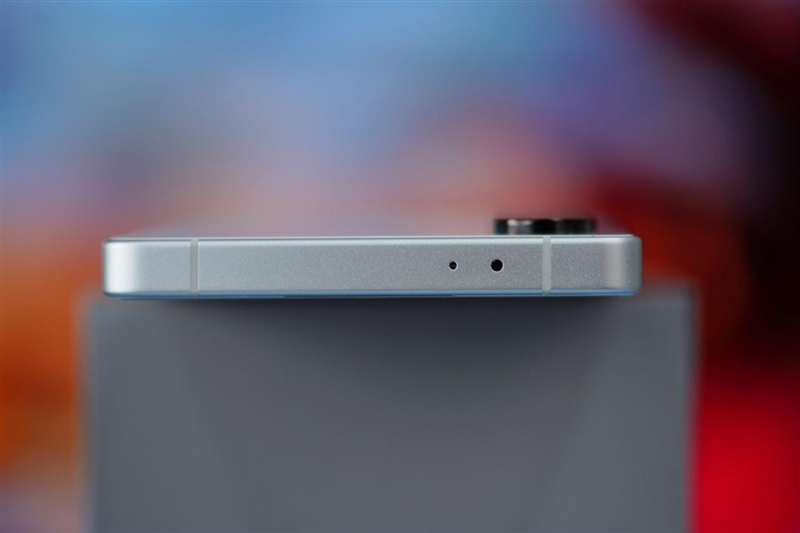
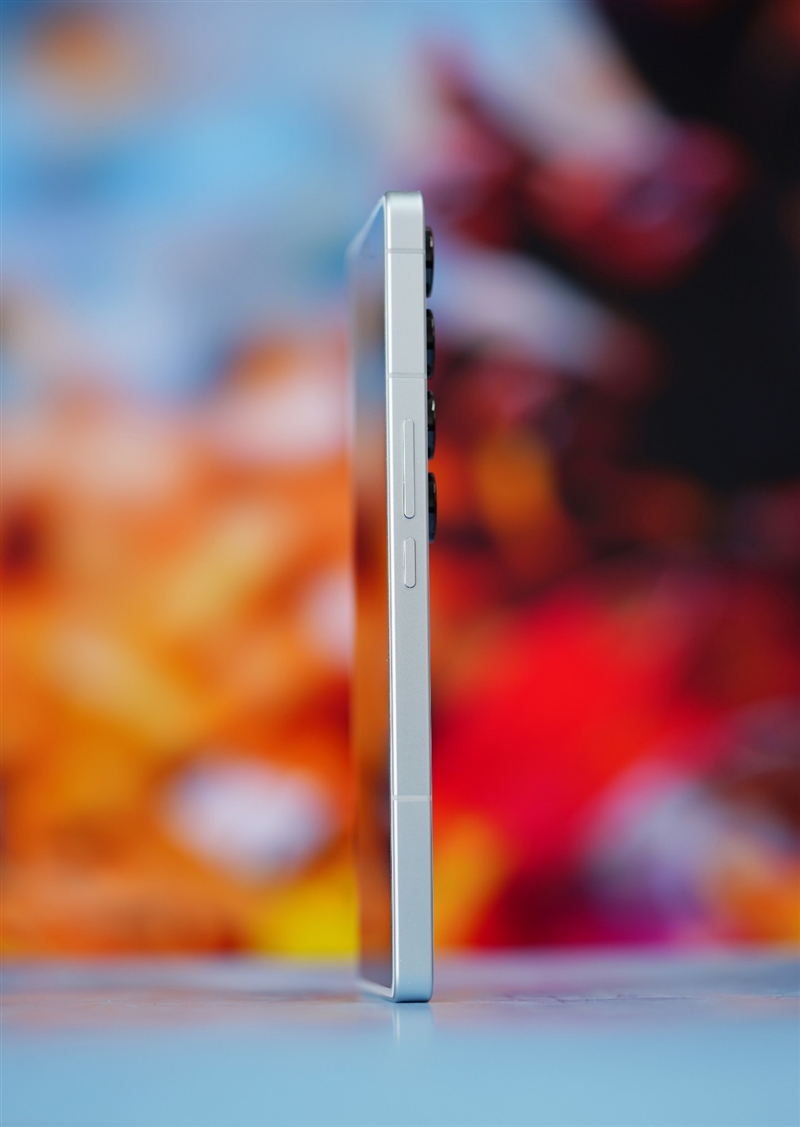
Moving on to the display specifications, the phone’s screen supports up to 2K+ resolution, features a 120Hz adaptive high-refresh screen, and incorporates 2160Hz high-frequency PWM dimming. Utilizing BOE’s latest luminescent materials and a diamond-like pixel arrangement scheme, the display boasts a resolution of 1368×3192, a standard PPI of 522, and an equivalent PPI of 417.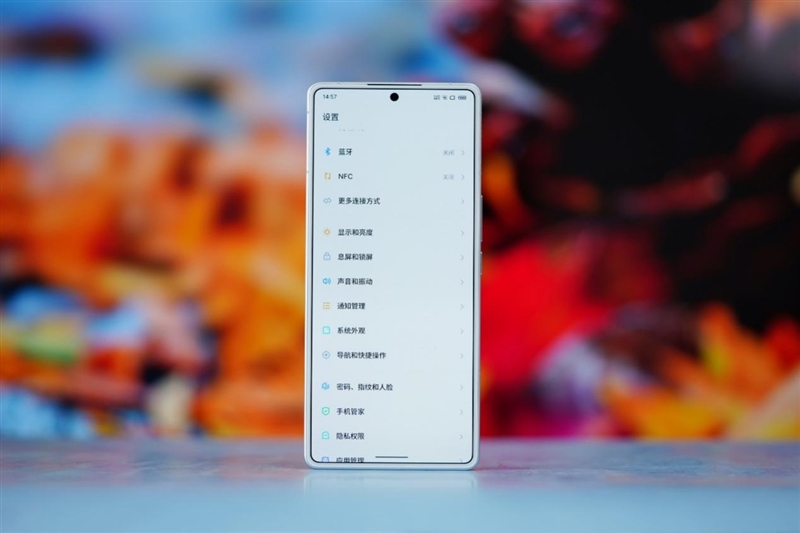
Focusing on the front camera, the 32-megapixel Samsung S5KJD1 CMOS is centrally located at the top. Examining the phone’s structure, all four sides feature an equal-width design, with a notably narrow bottom bezel. The back panel, designed using Xingyuan technology, adopts the Meizu White color scheme, presenting a delicate and moist appearance resembling jade. Notably, it remains fingerprint-resistant, enhancing the high-end feel.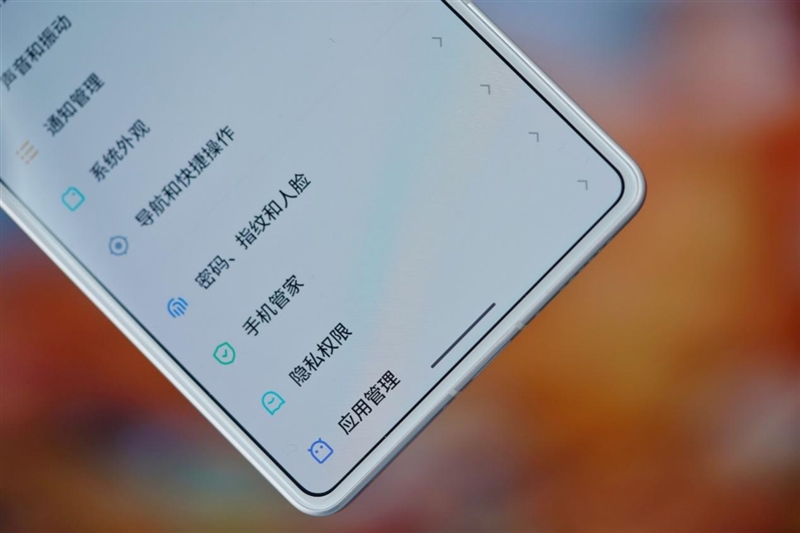
Transitioning to the rear camera setup, the three lens groups and flash are arranged side by side, conforming to public aesthetics. The classic ring flash, with 4 LEDs and a single color temperature, is retained, alongside the integration of a dToF laser focus sensor in the flash’s center. The integrated logo at the bottom blends seamlessly with the fuselage’s background color, showcasing the fusion of technology and aesthetics.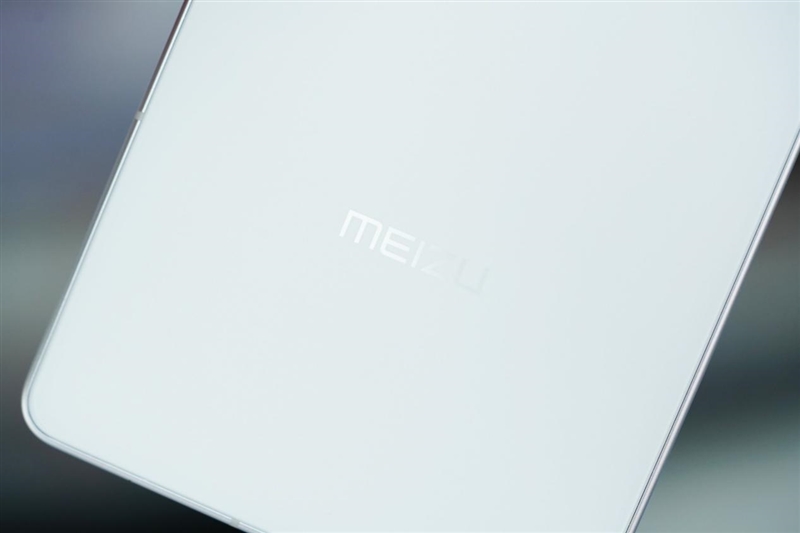
Examining the phone’s physical buttons, the power button and volume adjustment buttons are situated on the right side. The top of the phone features a secondary microphone and infrared remote control sensor.
Moving to the bottom, there’s a speaker interface, microphone, Type-C interface, and SIM card slot. Notably, the phone comes with an 80W wired fast charging set.
Hardware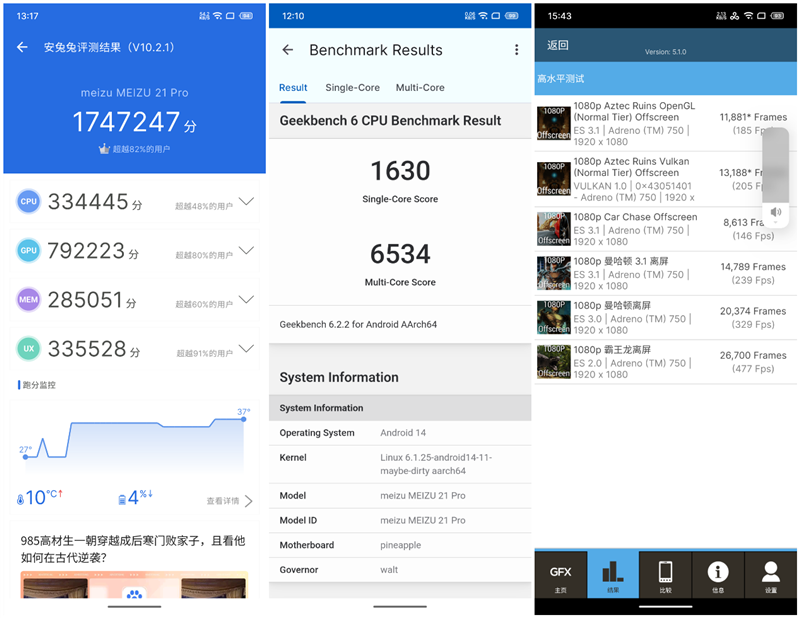
The Meizu 21 PRO stands as this year’s flagship mobile phone. It boasts the formidable third-generation Snapdragon 8, LPDDR5X 8533Mbps memory, and UFS4.0 flash memory, offering an impressive 16GB + 1TB storage in its top-tier configuration, which we have at 16GB+512GB.
Now, let’s delve into the theoretical performance tests we conducted on the Meizu 21 PRO. To maximize the Soc’s performance, we activated the high-performance mode and disabled the phone’s memory expansion function.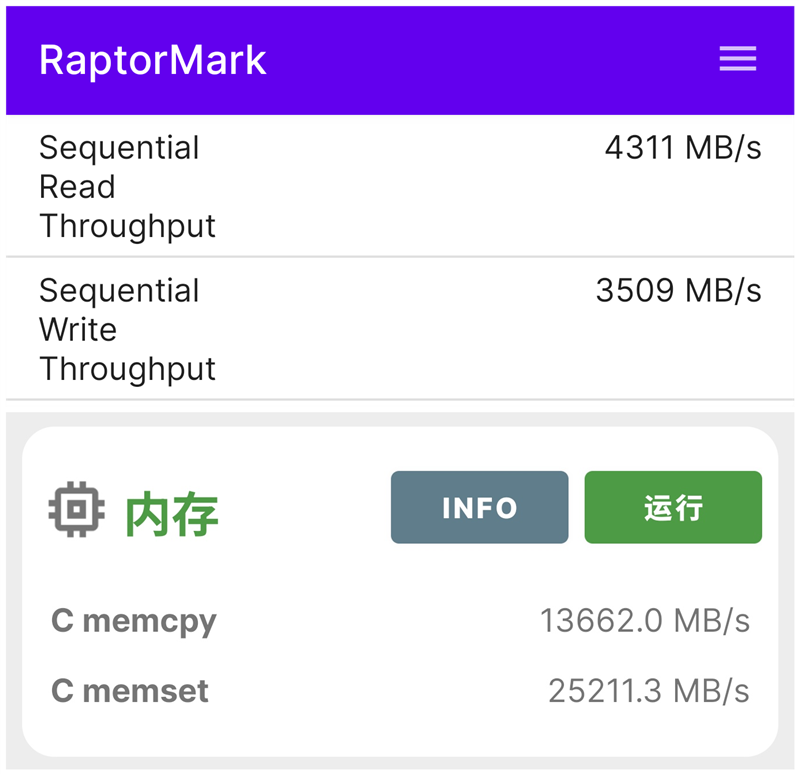
Commencing with the AnTuTu comprehensive performance test, the Meizu 21 PRO secured a total score of 1.747 million. The CPU individual score reached 334,400, and the GPU individual score soared to 792,200. Notably, compared to the second-generation Snapdragon 8 in the previous Meizu 20 PRO, the overall performance exhibited a commendable 25% improvement.
Shifting to the CPU single performance, our Geekbench 6 test revealed a single-core score of 1630 points and a multi-core score of 6534 points. In comparison to the prior Meizu 20 PRO with Snapdragon 8 Gen2, the multi-core performance witnessed an uplift of about 24.1%.
Turning our attention to the GPU test, GFXBench’s six 1080P projects showcased significant enhancements:
- Aztec Ruins OpenGL: 185FPS
- Aztec Ruins Vulkan: 205FPS
- Racing chase frame rate: 146FPS
- Manhattan 3.1 off-screen: 239FPS
- Manhattan off-screen: 329FPS
- Tyrannosaurus Rex off-screen: 477FPS
This generation of Snapdragon 8 Gen3 excels in graphics rendering, boasting up to a 60% improvement. This bodes well for enhanced fluency in playing large mobile games.
In the flash memory performance test, the Meizu 21 PRO achieved a sequential read rate of 4311MB/s and a sequential write rate of 3509MB/s. Meanwhile, the memory performance test displayed a copy speed of 13662MB/s and a write speed of 25211.3MB/s.
Now, transitioning to the gaming arena, we subjected the Meizu 21 PRO to rigorous tests using three popular mobile games: “Peace Elite,” “Genshin Impact,” and “Honkai Impact: Star Rail.”
In the Peace Elite mobile game test, the device maintained an average frame rate of 59.5 FPS over nearly 20 minutes. The average power consumption stood at 3.2W, with a frame energy consumption of 53.7mW, yielding an energy efficiency ratio of 18.6FPS/W. Impressively, the temperature remained comfortable, reaching a maximum of 34.7 degrees Celsius on the front and 33.5 degrees Celsius on the back.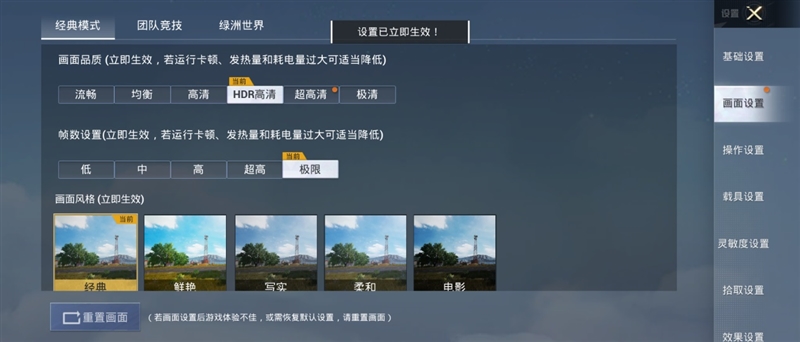
In the Genshin Impact mobile game test, the Meizu 21 PRO sustained an average frame rate of 58.1 FPS over 15 minutes. Power consumption averaged around 5.57W, with a frame energy consumption of 95.9mW and an energy efficiency ratio of 10.43FPS/W. Despite slightly higher power consumption, the VC liquid cooling module contributed to maintaining a reasonable temperature, reaching a maximum of 41.4 degrees Celsius on the front and 41.1 degrees Celsius on the back.
Finally, in the Honkai Impact: Star Dome Railway test, the Meizu 21 PRO exhibited a stable average frame rate of 58.1FPS during a 15-minute run. Power consumption was approximately 6.66W, with a frame energy consumption of 114.6mW and an energy efficiency ratio of 8.7FPS/W. The maximum temperature reached 45.2 degrees Celsius, prompting the suggestion of adjusting the phone’s position or using a radiator for prolonged gameplay.
Cameras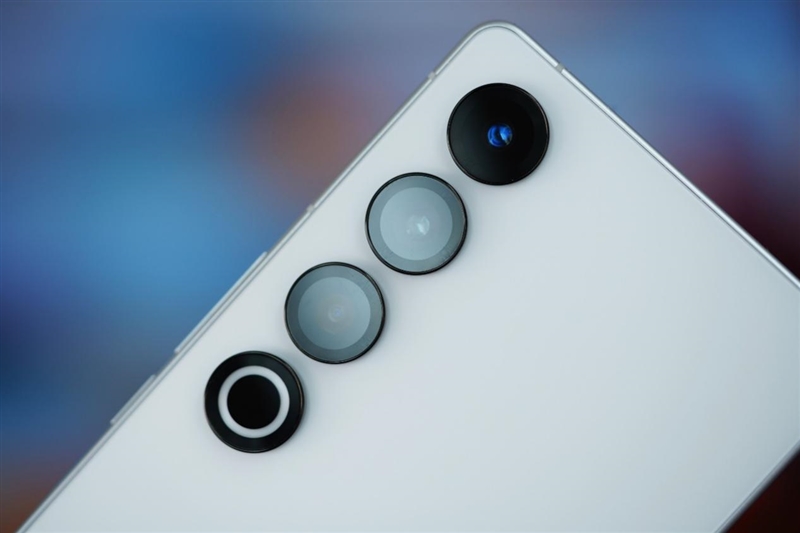
Meizu 21 PRO has the most robust imaging system in Meizu’s history, marking a significant milestone in the brand’s imaging journey.
Equipped with a domestically produced super outsole CMOS, the main camera features the Haowei OV50H sensor, a 1/1.31-inch photosensitive unit, and 1.2μm large pixels. It also incorporates OIS optical + EIS electronic dual anti-shake technology. Transitioning to the telephoto lens, it utilizes a 10-megapixel Sony IMX754 sensor with 3x optical zoom, supporting OIS + EIS dual anti-shake. The ultra-wide-angle lens, powered by a 13-megapixel Samsung S5K3L6 sensor, provides a 122° field of view.
Now, let’s delve into the image performance of the Meizu 21 Pro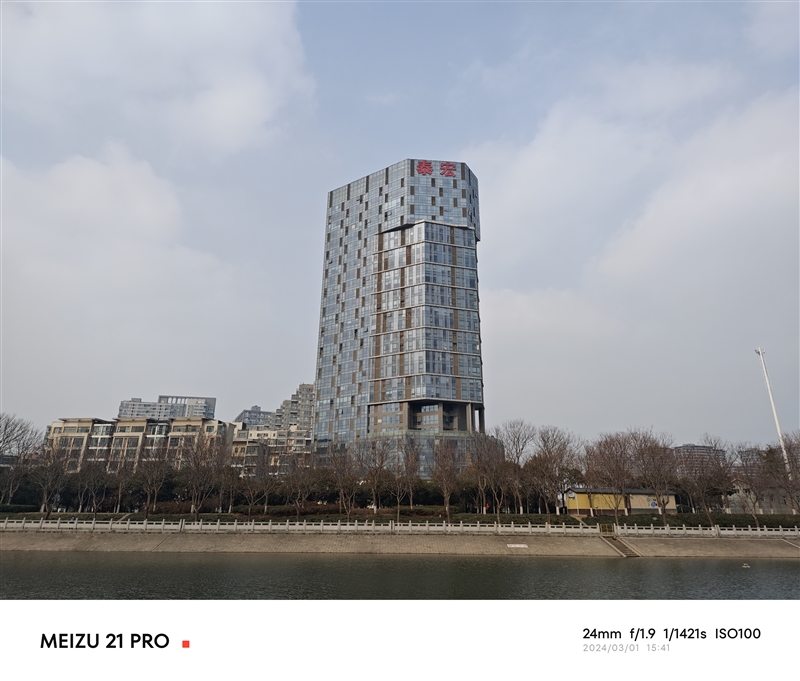
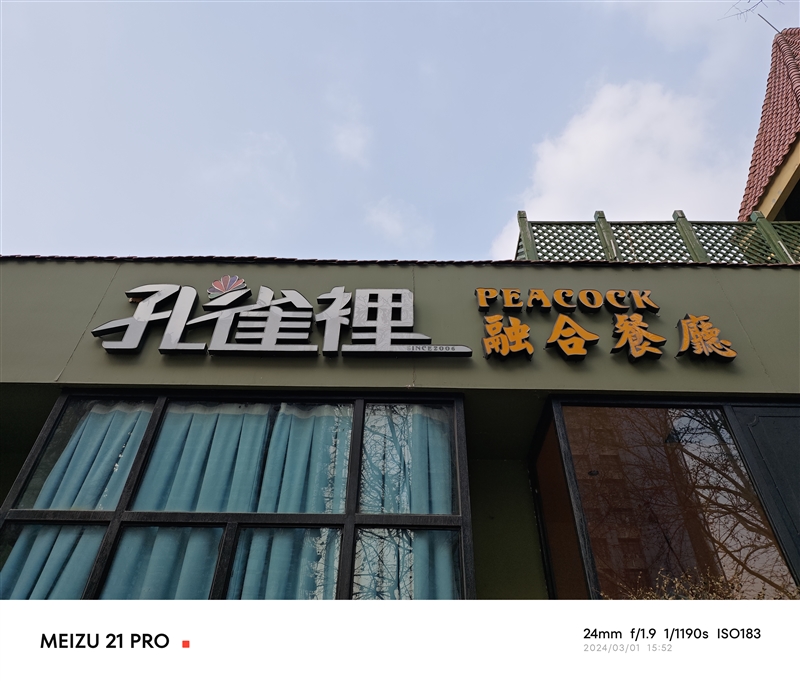
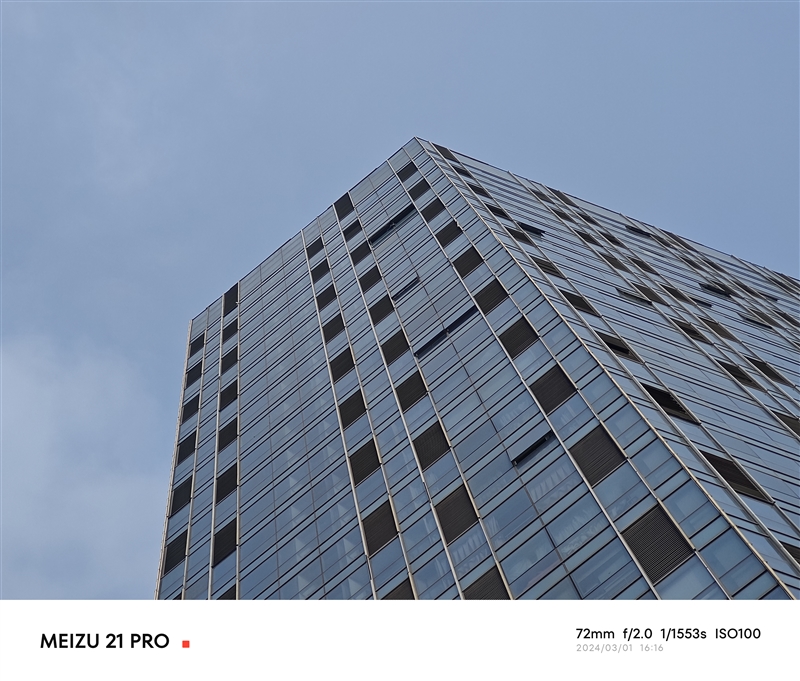
In daylight scenes, the main camera benefits from the outsole and ample light intake. Sample photos showcase a transparent texture, natural color performance, and an ability to accurately restore the subject’s true color. The dynamic range of captured flowers is excellent, avoiding conspicuousness. Buildings’ highlights aren’t overexposed, and details in dark areas are well-preserved.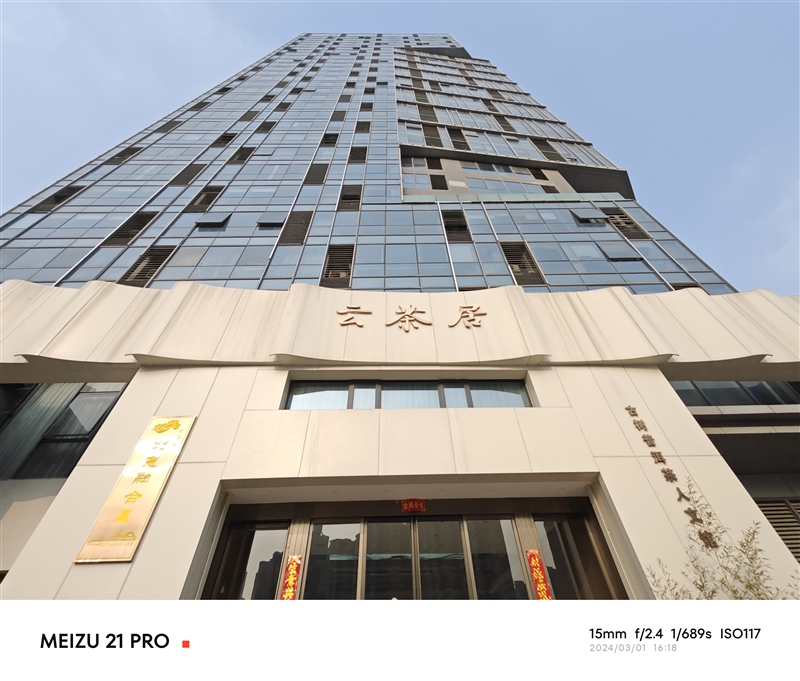
Moving to the 3x telephoto lens, even when cropped, it maintains image quality, with relatively accurate color restoration. System optimization enhances photos when magnified to over 5x, making them more enjoyable with minimal noise.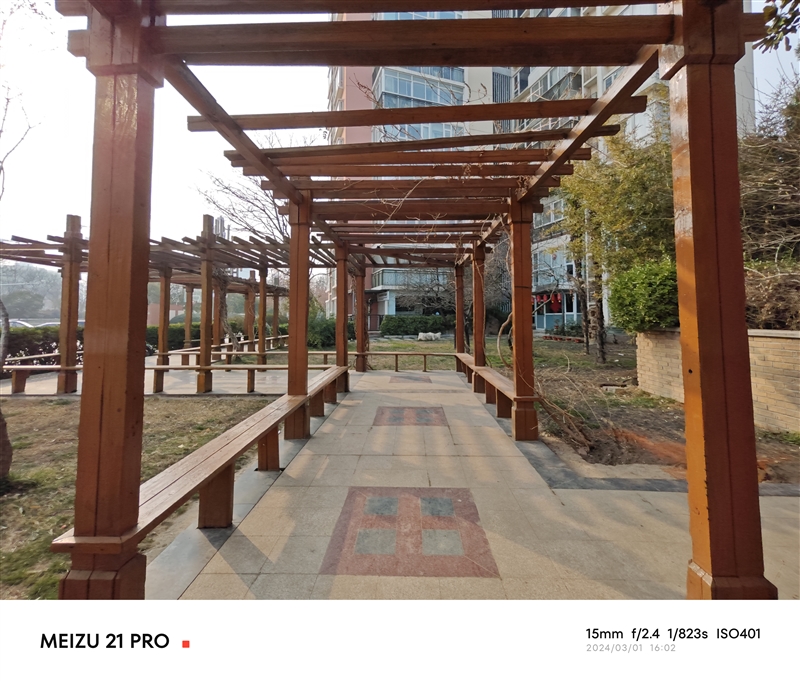
The 122° ultra-wide-angle lens, with default distortion prevention, adds harmony to the overall picture. While slight blurring may occur at the extreme edges, it doesn’t significantly impact the photo’s naturalness. Despite its 13 Megapixels, it offers a wide viewing angle, capturing magnificent images.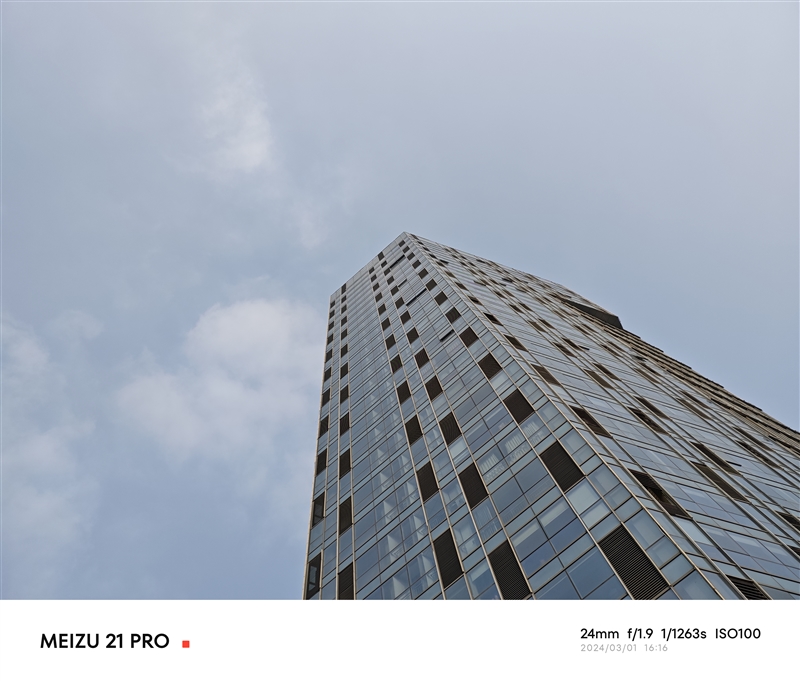
Transitioning to night scenes, the outsole main camera effectively suppresses highlight parts in high-contrast scenarios. This balance allows light and shadow details to coexist harmoniously. Bright red colors appear vibrant and pure without chromatic aberration, steering clear of common issues like whitening under prolonged exposure or high-brightness light sources.
Battery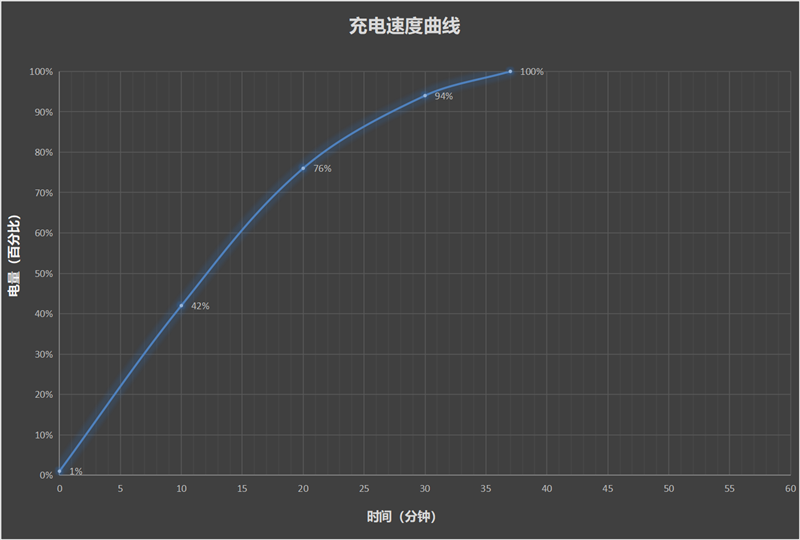
Meizu 21 PRO boasts a robust 5050mAh built-in battery, supporting both 80W Super mCharge wired overcharging and 50W wireless charging.
In our evaluation, we examined the charging capabilities and overall battery performance of the Meizu 21 PRO.
Transitioning to the charging test, we conducted practical assessments to gauge the device’s efficiency.
After just 10 minutes, the battery went from 1% to 42%, reaching 76% in 20 minutes, 94% in half an hour, and achieving a full charge in 37 minutes.
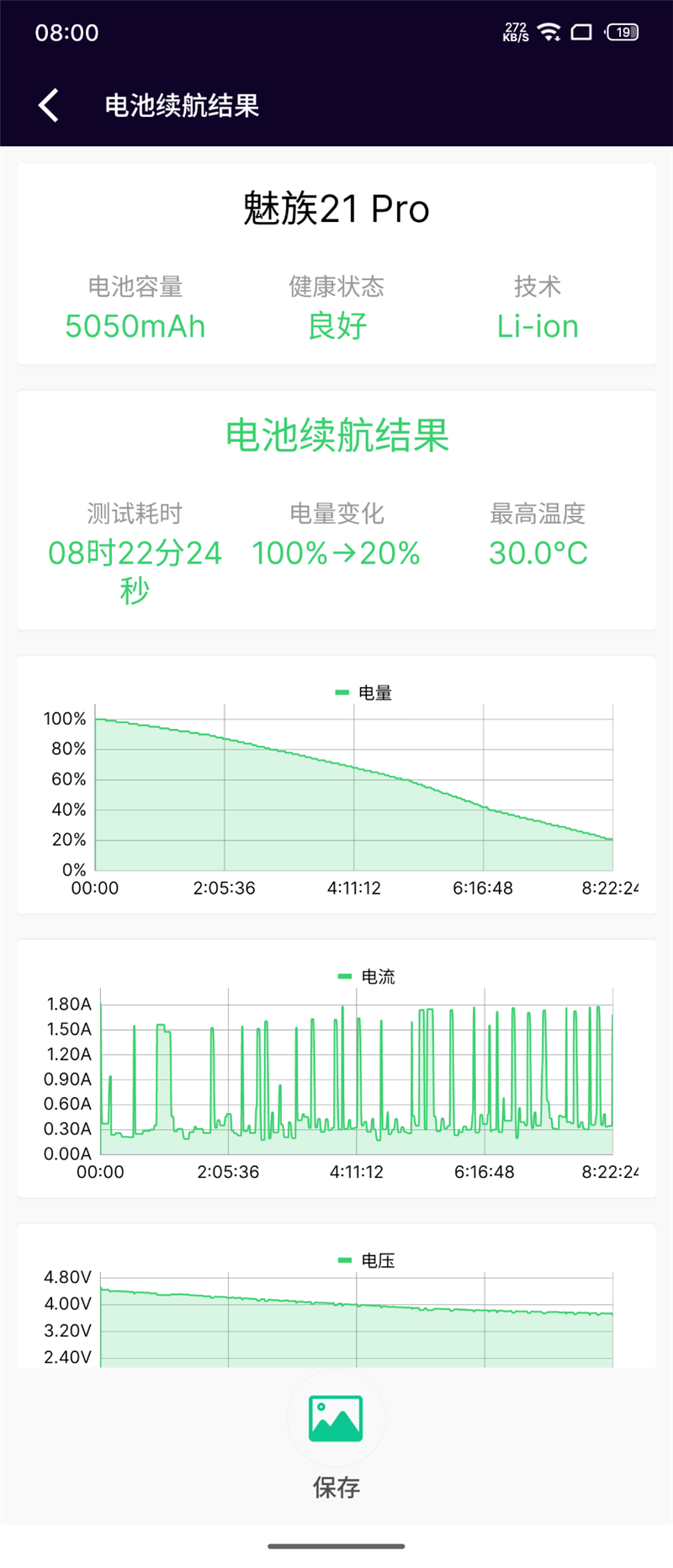
Moving on to the endurance test, we utilized a specialized tool, Battery Dog by Kuai Technology.
Defaulting to a 20% power test, we scrutinized various parameters, including CPU high voltage, CPU multi-threading, AI recognition, picture browsing, video playback, and web browsing. This simulated diverse user scenarios, closely resembling real-world power consumption.
Throughout the test, Battery Dog maintained consistency by automatically adjusting screen brightness to 50%, disabling automatic brightness, and setting the volume to 30%.
After continuous testing, Battery Dog recorded a consumption of power from 100% to 20% over 8 hours and 22 minutes. Calculating the results, the Meizu 21 PRO boasts an impressive full battery life of approximately 10 hours, ensuring seamless usage for daily activities.
Aicy Voice Experience
The Meizu 21 PRO relies on the Flyme 10.5 system, which injects a fresh soul into the Aicy voice assistant experience through the addition of large AI models. These models enable Aicy to comprehend complex contexts, delivering more accurate and personalized responses. Even the simplest questions are answered with the same level of intelligence.
Transitioning to our prepared questions, we aimed to test the fundamental capabilities of Aicy voice assistant. Meizu 21 PRO’s Aicy can effortlessly execute basic text-writing tasks using the AI large model. When faced with more intricate issues, its semantic understanding remains impressive, skillfully avoiding any repetitive responses.
When confronted with challenges requiring search integration, Meizu 21 PRO goes beyond providing accurate answers; it enhances the experience. For instance, asking about weight-friendly snacks prompts Aicy not only to suggest low-calorie options but also to include brand and calorie information. This thoughtful approach aids users in making more convenient and informed choices.
As of now, some AI features on Meizu 21 PRO are yet to be launched. Future integration will see AI embedded into the mBack key, allowing users to awaken the AI model with a simple press. Beyond conversation, the AI will analyze the screen content, offering rational suggestions.
Furthermore, upcoming AI functions, including AI photo-taking and AI elimination, will be launched concurrently. Plans also include opening the API interface of AI applets and inviting developers to join Meizu’s ecosystem. This collaborative effort aims to create a more intelligent and user-friendly experience.
Verdict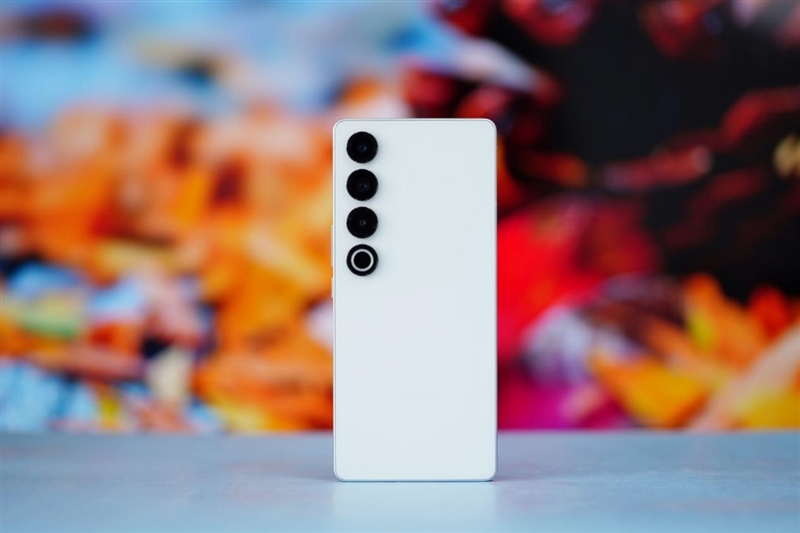
The Meizu 21 PRO inherits the robust straight-edge middle frame and rounded corners from the Meizu 20 PRO. Additionally, it features the 21:9 golden ratio screen of the Meizu 20 Unbounded Edition, providing a rare one-handed feel. With Meizu’s classic white panel and the glass body crafted by Xingyuan, the phone not only enhances its body texture but also offers a delicate touch, showcasing Meizu’s unwavering commitment to technological aesthetics.
Moreover, the introduction of the large-area wide-area ultrasonic fingerprint recognition eliminates the need for precise alignment, allowing easy unlocking in all directions. This signifies true freedom in unlocking. Transitioning to functionality, Meizu prioritizes retaining useful features at all costs, hoping other companies will adopt their concept in the future.
In terms of performance, the Meizu 21 PRO boasts the powerful support of the Snapdragon 8 Gen3 performance iron triangle and an ultra-large area VC liquid cooling module. Playing large-scale 3D mobile games like Genshin Impact maintains an average frame rate of 58.1 FPS. Despite occasional frame rate fluctuations, the overall heat generation decreases by a full 2 degrees Celsius compared to the previous Meizu 20 PRO.
In the realm of AI, Meizu opens all permissions to developers, fostering innovation and participation. This allows developers to create their own AI platform, transforming the Meizu 21 PRO into not just a mobile phone but a collaborative AI platform built by developers. This marks a pivotal step for Meizu in integrating AI technology and building a new platform for future smart experiences.
In summary, the Meizu 21 PRO transcends the definition of a smartphone. It serves as a watershed, concluding the era of traditional mobile phones and ushering in the era of AI mobile phones. Embracing the advanced concept of “All in AI,” it establishes an AI mobile phone that bridges the past and the future – the inaugural AI terminal device shaping the future of AI mobile phones.
The birth of the Meizu 21 PRO signifies a milestone in Meizu’s history of mobile phone development, indicating that AI will increasingly play a pivotal role in the future of smartphones.
Read Also: Meizu smart glasses MYVU Force Blue released: support 6 languages AI voice translation at 2,299 yuan, $323
